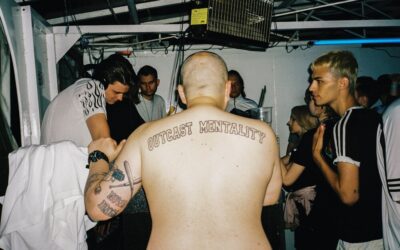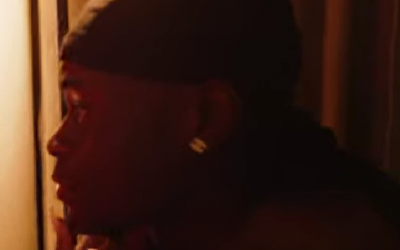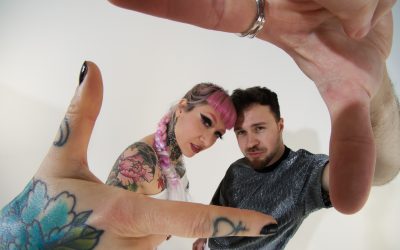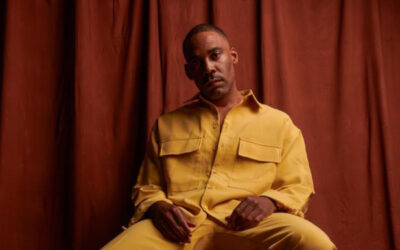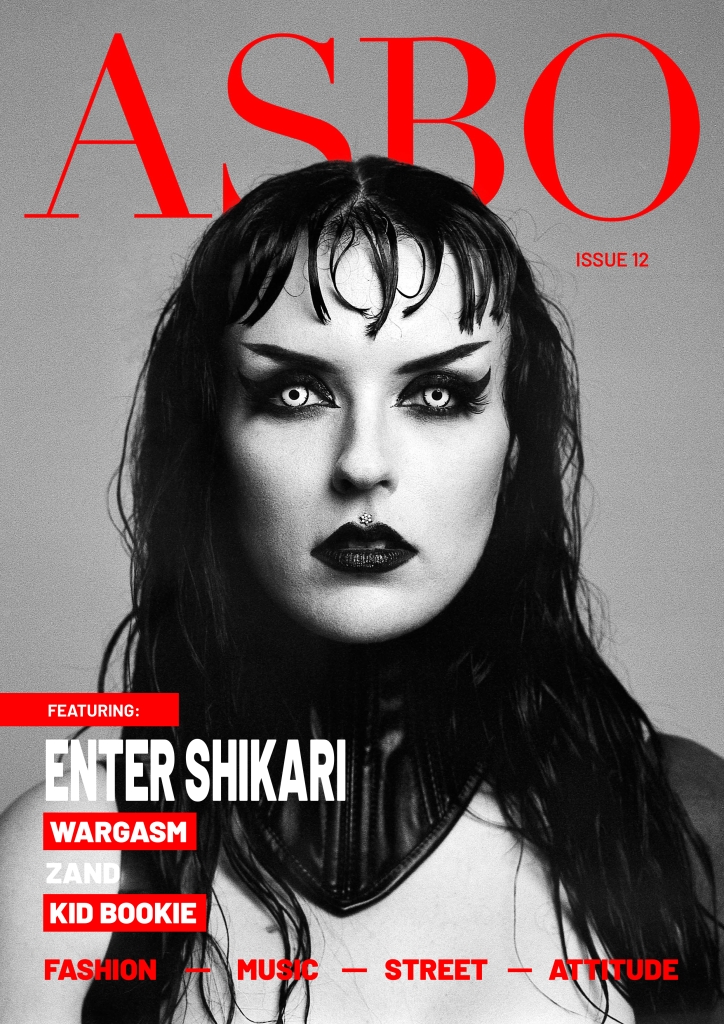
At ASBO we’re excited to sit down and have a chat with the British-Asian musician Surya Sen, to discuss his latest mixtape At What Cost? An ode to a night out from a truly innovative mind. Combining both influences from hip hop and house music to create a verdant sound, Surya Sen talks to us about his inspirations, his love of London and the perfect fit.
So your album At What Cost? is out, how has that release been for you?
Surya Sen: It’s been crazy but I’m very proud of it. Very proud of the whole team behind it, we all worked very hard. I’m very excited that it’s out now, because it’s been in the making for a while.
I mean it really is a team project. There are a plethora of features on the Album, Are they friends of yours? How did their involvement come about?
Surya Sen: I think there are four features on the album. They’re all my friends, who I know are really sick musicians. I wanted to kind of work more with my friends and make this a moment to remember. Like even the skits and stuff, that’s all done by the same guys.
So Bone Slim is the American voice as well as a rapper and FELA.Mi is doing the soundscaping and stuff. I’m really proud that I got to make it with my friends and you read the tracklist and it’s like we’re all proud of it together. So I’m very humbled to be the one bringing it all together.
I mean alongside just very well put together music, from the distinct sound-scapes and train noises and the people getting really mad behind the scenes on the tracks. It feels like a party on a train. What were the ideas and the thought process behind putting all those together?
Surya Sen: I think when I started working on it originally it was an EP, like a four-track EP, but it just evolved into this. It all kind of came from being in a pandemic, you know you hear so much about what we weren’t allowed to do innit it’s such b****, but literally, I missed going out, raving and being in the music and that feeling – everything that was associated with that experience.
You know at the height of the pandemic, you couldn’t even go out when you couldn’t sit around a table with your mates or even strangers – all this isolation and distancing.
I really missed the thought of dancing and listening to music, being in London, going on the tube and being social with my friends.
And it kind of stemmed from that, and then what a normal night would look like for me, I guess, or what sensations would come up for me during a night out.
So I just, is kind of the house party and then Slidin’ is still in the house getting ready. Then Left or Right is outside the club and then Jessica in the club then like then there’s the after-party kind of vibe. Then there’s like the comedown, which is Here We Go Again – finishing with this light at the end of it all, which is where the track In My Head comes from.

London is a big part of your musical identity, so what are your favourite spots in London?
Surya Sen: Fabric is a mainstay. Fun Ox is great. Anywhere they play like just great DJs. I love XOYO been seeing a lot of people there as well. Just great music places with great music and great DJs.
I remember reading in NME that you did a show at Defective Records?
Surya Sen: Yeah.
How was that?
Surya Sen: It was thoroughly dope.
I’ve heard it was a little bit of a goal for you.
Surya Sen: It was like mind-blowing for me. I was very into hip hop growing up and that’s kind of like my mainstay, but then like dance and stuff, a lot of that came to me via Defected, the Defected compilations on CD. Then to be around them was just like, whoa, this is mind-blowing to me, and then it transitioned into them inviting me to do a set.
For me it was just like, whoa, I can’t believe that. Especially as it’s a very white male-dominated, like house music, you know? I premiered the Bengali song there. I was just a little bit emotional at the fact that I’m in the Defected basement
And then were they loving it?
Surya Sen: They were, the old defected heads came up to me as well like the 50-year-old’s saying like that it sounded wicked – So yeah, it was a really proud moment for me.
In your tracks, we can hear this fusion of House and Hip Hop, So what’s your process of arranging them together?
Surya Sen: I always start with digging for a sound or something that sounds like a moment. All my things always start with the beat I like first.
It’s gotta have a mood to it you know? This then easily enables me to write something to it. But for me it’s always the beat, you know? So then I like working around that beat to make it a full song and something that people resonate with. I definitely treat it systematically – everything working together in its designated place.
So what has been your musical journey? What did you start listening to as a child? Can you describe where this musical influence has taken you?
Surya Sen: You know what, it’s a good question because there’s a lot that like I didn’t get into or wasn’t into. I didn’t really have any introductions to rock or indie, to be honest.
My relationship with music started with the TV – as a classic like Mambo Number Five when that came out, I saw the choreography and the direction around it, thinking to myself he’s so fly and he’s got like all these girls around him and he is looking kinda gangster. But bro you know it’s a dance song.
I also like fat boy slim Right here, Right now. The kinds of Electronic songs that were like a dance where you didn’t realise it. Stuff coming from that era of the two thousands was golden.
Daft Punk and sounds in Stardust, the Music sounds better with you, then kind of from that into, in my early teens it progressed into listening to hip hop. A few names I resonated with were Mobb Deep, and NAS’s Illmatic was my favourite album. Going a bit further I started digging Crates Crew and Big L – I was curious and wanted to analyse how and who these producers were making the beats.
Who made the beat on One Life? Like, oh, QTIP made that beat. I’m thinking like, how did you make that beat? Then that’s how I started experimenting with sampling.
An important element of music is the ability to dance however you want to it, you know, and I want to make people who listen to my stuff express themselves to it and feel comfortable in doing that.
Coming from a Bangladeshi background, It’s not a culture, as I understand, that has a lot of rave culture. How do you feel like it’s been pushing out into that space in the UK?
Surya: Honestly, I think a bit daunting because I definitely feel like I am something that’s a lot of older generation Bangladeshi will still shy away from a little bit, music and stuff because they’re predominantly Muslims as well. So the other elements associated with dance music are definitely a difficult thing to be taken by the older generation, But I’m happy to be a part of the new wave of British Bangladeshi sound.
I’m very proud to show younger generations to be like ‘yo, it’s cool to just do whatever, if you like it and you’re good at it, as long as you’re a good person. Cause it doesn’t happen much for us. Mainly because it’s still sheltered from the Bangladeshi community, you know?
What is your perfect fit for an evening? What are you most comfortable in, cause you are up at the front at the DJ deck?
Surya Sen: Honestly this is something new to me. I’m kind of new too as well like going into music. You’ve got to feel comfortable, you know? Baggy fits are always my favourite. I love the baggy cargos.
Surya Sen: Yeah I have the same bro, but definitely it’s really important to be comfortable in what you dress. But I was kind of late on that way of thinking. I guess when I’d work, I used to work in finance, so I was used to wearing a suit and you don’t look like you… even though I was always into fashion, but I was used to wearing clothes just for work.
You’ve said that you’ve gone from the extrospective and got in your own head at the end of Skip Two. Where did that journey begin for you? Where are you when you’re in your own head at the end of the night?
Surya Sen: So the mixtape kind of just came together, It came from a particular experience, that I was really not in a good place back in 2018 – 2019. I was just like, questioning myself thinking – I don’t think this is what I’m supposed to be doing all my life.
So songs like Here We Go Again and those lyrics are so depressive and I’m talking about difficulties in personal relationships. They were all real moments blended into this dance tune, so it’s deeper for me and very cathartic. I guess it was also weaving of my Asian identity into all of this, so halfway through the album is the tune Buccho Ni Ba Bhai.
I kind of wanted to highlight the collective struggle some South Asians experience and where we are at now. But in my head, so I wanted to work on this further in Here We Go Again.


What’s the next stage for you? You’ve just released this next tape. You’ve had great reviews. What is the next stage for you? Where do you plan to take this record?
Surya Sen: I’m going to continue making beats man. I wanna light-up dance floors. So I think I might do some like solo dance records without my vocals or something, you know? Cause I’m really into that as well.
I feel like, with this project, in particular, I definitely went into a lot more hip hop. So even though I have some dance elements in it, it lent more to hip hop. So I definitely want to explore doing proper dance records and then come out with another album.
You can listen to At What Cost? on Spotify and follow him @suryasenmusic
Styling by @belladupee
Archive from Jayden Bains
Archive from @bountybodega
Photos by Ayesha Kazim
Creative Direction by @karla.lizethephoto
Interview by @peter-wellman
With thanks to GoodMachine PR



